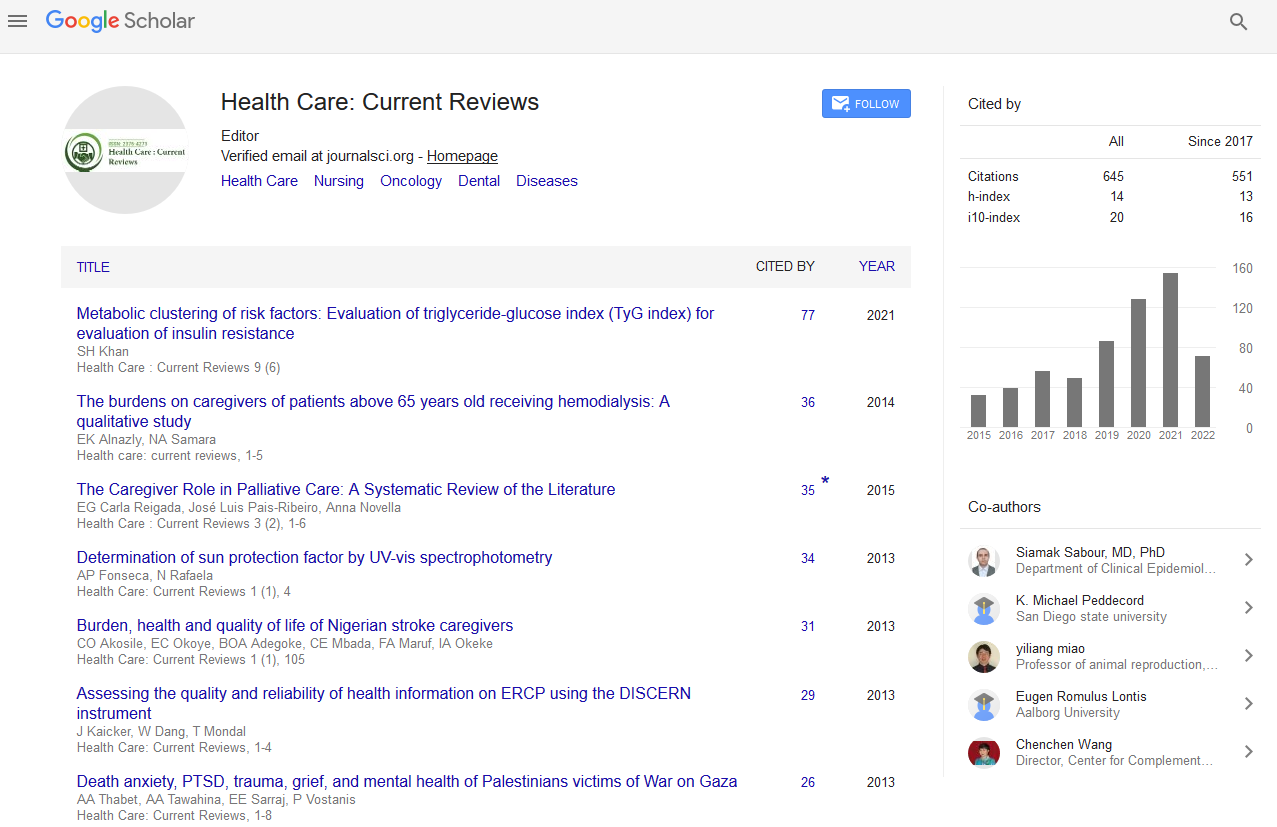PMC/PubMed Indexed Articles
Indexed In
- Open J Gate
- Academic Keys
- RefSeek
- Hamdard University
- EBSCO A-Z
- Publons
- Geneva Foundation for Medical Education and Research
- Google Scholar
Useful Links
Share This Page
Journal Flyer

Open Access Journals
- Agri and Aquaculture
- Biochemistry
- Bioinformatics & Systems Biology
- Business & Management
- Chemistry
- Clinical Sciences
- Engineering
- Food & Nutrition
- General Science
- Genetics & Molecular Biology
- Immunology & Microbiology
- Medical Sciences
- Neuroscience & Psychology
- Nursing & Health Care
- Pharmaceutical Sciences
Genetic basis of obesity
3rd Indo-Global Summit & Expo on Healthcare
October 05-07, 2015 New Delhi, India
Kaiser Jamil, Mohan Reddy and Kalyan Kumar
Bhagwan Mahavir Medical Research Center, India
Scientific Tracks Abstracts: Health Care: Current Reviews
Abstract:
Background: Leptin plays an important role in mammary tumor formation. It is secreted by adipose tissue that acts at the brain to regulate energy expenditure and food intake and has an important role in energy balance, insulin pathway and inflammation. Hence the aim of our investigation has been to study the impact of Lep-2548G/A polymorphism in breast cancer obese patients as compared to matched individuals. Patients & Methods: The present study focuses on the polymorphism leptin gene for variants by screening of this gene in south Indian obese subjects (n=154 obese breast cancer cases and n=145 obese controls). We utilized PCR-RFLP based assay to evaluate the association between the Gln2548Arg polymorphism of the leptin gene and breast cancer risk in case control study. Results & Discussion: The distributions of all three genotypes in Breast cancer cases were 18.8%, 44.8% and 36.4% compared to that of the controls, 33.0%, 29.6% and 37.4%. We found that postmenopausal breast cancer cases showed statistically significant association with GA genotype when compared with premenopausal women without disease (p=0.001). This difference was between the cases and controls in the Gln2548Arg genotypes. Conclusion: Our findings suggest that the LEP Gln2548Arg polymorphism may be a useful diagnostic marker for obese patients and a prognostic marker for non-obese individuals with the risk of breast cancer in women in Indian population.
Biography :
Kaiser Jamil is a CSIR-Emeritus Scientist; who continued her research on projects related to human health and Cancer and has contributed in the field of Biomarkers in Breast cancer, Leukemia and Head and Neck cancer. Her work on SNPs of drug metabolizing genes in cancers, unfolds the mechanisms of several important genes and the networking of the proteins associated with these genes, elucidated Drug-Gene interactions. Continuing her work she is busy elucidating the role of signaling pathways such as tyrosine kinase inhibitors (TKI) and MAPK in HNC and breast cancer.
Email: kj.bmmrc@gmail.com


